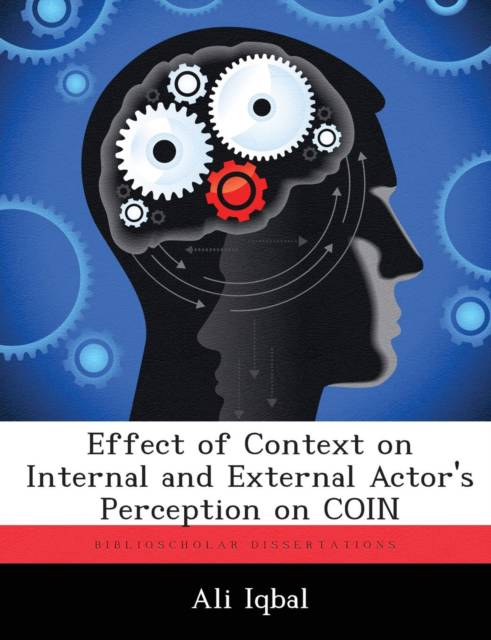
- Retrait gratuit dans votre magasin Club
- 7.000.000 titres dans notre catalogue
- Payer en toute sécurité
- Toujours un magasin près de chez vous
- Retrait gratuit dans votre magasin Club
- 7.000.000 titres dans notre catalogue
- Payer en toute sécurité
- Toujours un magasin près de chez vous
Effect of Context on Internal and External Actor's Perception on COIN
Ali Iqbal
Livre broché | Anglais
54,45 €
+ 108 points
Description
Tactical level nuances between COIN by an external and an internal actor are barely distinguishable. The successful COIN practices for an external actor listed in FM 3-24 COIN manual of US Army include maintaining a constant, forward presence with the population, acquiring and disseminating accurate and timely intelligence, and avoiding overreaction to insurgent activity. These well recognized and established principles are also applicable to COIN conducted by internal actors. At the operational level, however, the context in which both the actors operate is fundamentally different. COIN concepts, most significantly legitimacy, have a different connotation for both of them and therefore require a different approach to achieve. The external actor's context is extremely complicated due the presence of numerous actors like the host nation government and its forces, extra regional and regional countries, and domestic audience. On the other hand the internal actor has relatively less complexity as it is dealing with an internal problem that has to be dealt within the context of its own dynamics. Understanding this difference is critical for both the actors. The internal actor has to realize that it cannot blindly adopt the COIN concepts and approach of external actors as both of them face different contexts. At times actions and overtures that seem irresponsible and nonsensical to external actors have an internal history or caveat within whose domain the internal actor has to operate. The onus of developing the contextual understanding which leads to a suitable COIN approach lies with the internal actor. Therefore, expectations in COIN from internal actors need be assessed as per the dynamics in which they operate. Unrealistic expectations based on external actors' perspectives will likely be detrimental to the systemic understanding of COIN. Apropos, external actor's approach towards COIN which is tailored specifically to the context in which it operates also needs to
Spécifications
Parties prenantes
- Auteur(s) :
- Editeur:
Contenu
- Nombre de pages :
- 82
- Langue:
- Anglais
Caractéristiques
- EAN:
- 9781288229871
- Date de parution :
- 29-10-12
- Format:
- Livre broché
- Format numérique:
- Trade paperback (VS)
- Dimensions :
- 189 mm x 246 mm
- Poids :
- 163 g







